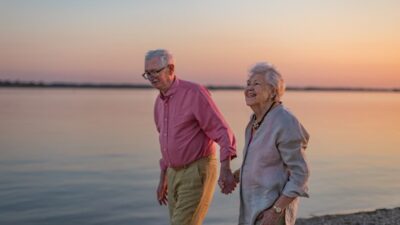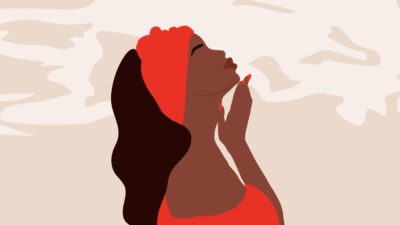
The renowned Polish piano duo Marek and Wacek didn’t use sheet music when playing live concerts. And yet onstage the pair appeared perfectly in sync. On adjacent pianos, they playfully picked up various musical themes, blended classical music with jazz and improvised in real time.
“We went with the flow,” said Marek Tomaszewski, who performed with Wacek Kisielewski until Wacek’s death in 1986. “It was pure fun.”
The pianists seemed to read each other’s minds by exchanging looks. It was, Marek said, as if they were on the same wavelength. A growing body of research suggests that might have been literally true.
Dozens of recent experiments studying the brain activity of people performing and working together — duetting pianists, card players, teachers and students, jigsaw puzzlers and others — show that their brain waves can align in a phenomenon known as interpersonal neural synchronization, also known as interbrain synchrony.
“There’s now a lot of research that shows that people interacting together display coordinated neural activities,” said Giacomo Novembre, a cognitive neuroscientist at the Italian Institute of Technology in Rome, who published a key paper on interpersonal neural synchronization last summer. The studies have come out at an increasing clip over the past few years — one as recently as last week — as new tools and improved techniques have honed the science and theory.
They’re finding that synchrony between brains has benefits. It’s linked to better problem-solving, learning and cooperation, and even with behaviors that help others at a personal cost. What’s more, recent studies in which brains were stimulated with an electric current hint that synchrony itself might cause the improved performance observed by scientists.
“Cognition is something that happens not just in the skull but in connection with the environment and with other people,” said Guillaume Dumas, a professor of computational psychiatry at the University of Montreal. Understanding when and how our brains synchronize could help us communicate more efficiently, design better classrooms and help teams cooperate.
Getting in Sync
Humans, like other social animals, have a propensity to sync their behaviors. If you walk next to someone, you will likely begin walking in step. If two people sit alongside one another in rocking chairs, chances are they will start rocking at a similar pace.
Such behavioral synchrony, research shows, makes us more trusting, helps us bond and turns up our sociable instincts. In one study, dancing in sync made participants feel emotionally close to one another — much more so than groups that moved asynchronously. In another study, participants who chanted words rhythmically were more likely to cooperate in an investment game. Even a simple walk in unison with a person from an ethnic minority can reduce prejudice.
“Coordination is a hallmark of social interaction. It’s really crucial,” Novembre said. “When coordination is impaired, social interaction is deeply impaired.”
When our movements coordinate, myriad synchronizations invisible to the naked eye also arise inside our bodies. When people drum together, their hearts beat together. The heart rates of therapists and their patients can sync up during sessions (especially if the therapeutic relationship is working well), and those of married couples can too. Other physiological processes, such as our breathing rate and skin conductance levels, may also line up with those of other people.
Only in the past 20 years has technology emerged that lets neuroscientists study interbrain synchrony. Hyperscanning uses functional near-infrared spectroscopy, worn on a swim-cap-like device, to monitor the neural activity of multiple individuals engaging socially.

Can activity in our brains sync up? In 1965, the journal Science published the results of an experiment that suggested it can. Scientists from Thomas Jefferson University in Philadelphia tested pairs of identical twins by inserting electrodes under their scalps to measure their brain waves — a technique called electroencephalography. The researchers reported that when the twins stayed in separate rooms, if one of them closed their eyes, the brain waves of both would reflect the movement. The spikes on the electroencephalograph of one twin mirrored spikes on the other’s.
The study, however, was methodologically flawed. The researchers had tested several pairs of twins but published results only from the pair in which they observed synchrony. This didn’t help the burgeoning academic field. For decades, research on interbrain synchrony got shoved into the “weird paranormal quirk” category and was not taken seriously.
The field’s reputation began to change in the early 2000s with the popularization of hyperscanning, a technique that lets scientists simultaneously scan the brains of several interacting people. At first, this involved asking pairs of volunteers to lie in separate fMRI machines, which greatly restricted the kinds of studies that scientists could perform. Researchers were eventually able to use functional near-infrared spectroscopy (fNIRS), which measures the activity of neurons in the outer layers of the cortex. The great advantage of that technology is its ease of use: Volunteers can play drums or study in a classroom while wearing fNIRS caps, which resemble swimming caps with a multitude of cables sticking out.
Cognition is something that happens not just in the skull but in connection with the environment and with other people.”
When multiple people interacted while wearing fNIRS caps, scientists began finding synced interneural activity in regions throughout the brain, which varied by task and study setup. They also observed brain waves, which represent electrical patterns in neuronal firing, synchronizing at several frequencies. On an electroencephalograph reading of two synchronized brains, the lines representing each person’s neural activity fluctuate together: Whenever one spikes up or plunges down, so does the other, although sometimes with a time lag. Occasionally brain waves appear in mirrored images — when one person’s goes up, the other’s goes down at the same time and with a similar magnitude — which some researchers also consider a form of synchrony.
With new tools, it became increasingly clear that interbrain synchrony was neither metaphysical mumbo-jumbo nor the product of faulty research. “[The signal] is definitely there,” said Antonia Hamilton, a social neuroscientist at the University College London. What proved harder to understand was how two independent brains, in two separate bodies, could show similar activity across space. Now, Hamilton said, the big question is “What does that tell us?”
The Recipe for Synchrony
Novembre has long been fascinated by how humans coordinate to achieve common goals. How do musicians — duetting pianists, for example — collaborate so well? Yet it was thinking about animals, such as fireflies syncing their flashes, that set him on the path to study the ingredients needed for interbrain synchrony to arise.

Given that synchrony is “so widespread across so many different species,” he recalled, “I thought: ‘OK, then there might be some very simple way to explain it.’”
Novembre and his colleagues set up an experiment, published last summer, in which pairs of volunteers did nothing but sit facing each other while camera equipment tracked the movements of their eyes, face and body. Sometimes the volunteers could see one another; at other times they were separated by a partition. The researchers found that as soon as the volunteers looked each other in the eyes, their brain waves instantly synced up. Smiling proved even more powerful in aligning brain waves.
“There is something spontaneous about synchrony,” Novembre said.
Movement, too, is linked to synchronized brain wave activity. In Novembre’s study, when people moved their bodies in sync — if, say, one lifted their hand and the other did the same — their neural activity would match up, on a slight lag. However, interbrain synchrony goes beyond mirroring physical movements. In a study of pianists playing duets published last fall, a breakdown in behavioral synchrony did not cause the two brains to desynchronize.
Another important ingredient for face-to-face neural synchrony appears to be mutual prediction: anticipating another person’s responses and behaviors. Each person is “moving their hands or their face or their body, or they’re speaking,” Hamilton explained, “and also responding to the actions of the other person.” For example, when people played the Italian card game Tressette, the neural activity of partners synced together — but their opponents’ brains did not align with them.
When people played the Italian card game Tressette, the neural activity of partners synced together — but their opponents’ brains did not align with them.
Sharing goals and joint attention often appear crucial to interbrain synchronization. In an experiment conducted in China, three-person groups had to cooperate on solving a problem. There was a twist: One team member was a researcher who only pretended to engage in the task, nodding and commenting when appropriate but not really caring about the outcome. His brain didn’t synchronize with those of genuine team members.
However, some critics argue that the appearance of synced brain activity is not evidence of any kind of connection but rather can be explained by people responding to a shared environment. “Consider two people listening to the same radio station in two different rooms,” wrote Clay Holroyd, a cognitive neuroscientist at Ghent University in Belgium who does not study interbrain synchrony, in a 2022 paper. “[Interbrain synchrony] might increase during songs that they both enjoy compared to songs that they both find boring, but this would not be a consequence of direct brain-to-brain coupling.”
To test this criticism, scientists from the University of Pittsburgh and Temple University designed an experiment in which participants worked differently on a focused task: completing a puzzle. The volunteers either assembled a puzzle collaboratively or worked on identical puzzles separately, side by side. While there was some interneural synchrony between puzzlers working independently, it was much greater in those who collaborated.
To Novembre, these and similar findings suggest that interbrain synchrony is more than an environmental artifact. “As long as you measure brains during social interaction, you will always have to deal with this problem,” he said. “Brains in social interaction will be exposed to similar information.”
The Mutual Wave Machine, which toured cities around the world from 2013 to 2019, let passersby explore interbrain synchrony in pairs while generating data for neuroscience research.
Unless they’re in different places, that is. During the pandemic, researchers grew interested in understanding how interbrain synchrony might change when people talk face-to-face over video. In one study, published in late 2022, Dumas and his colleagues measured the brain activity of mothers and their preteen children when they communicated through online video. The pairs’ brains barely synchronized, much less so than when they talked in person. Such poor interbrain synchrony online could help explain why Zoom meetings tend to be so tiring, according to the study’s authors.
“There’s a bunch of things in a Zoom call that are missing compared to a face-to-face interaction,” said Hamilton, who was not involved in the research. “Your eye contact is a bit different because the camera positioning is wrong. Even more importantly, your joint attention is different.”
Identifying the necessary ingredients for interbrain synchrony to arise — be it eye contact, smiling or sharing a goal — could help us better attain the benefits of syncing with others. When we are on the same wavelength, things simply get easier.
Emergent Advantages
The cognitive neuroscientist Suzanne Dikker likes to embrace her creative side by using art to study how human brains work. To capture the elusive notion of being on the same wavelength, she and her colleagues created the Mutual Wave Machine: half art installation, half neuroscience experiment. Between 2013 and 2019, passersby in a variety of cities around the world — Madrid, New York, Toronto, Athens, Moscow and others — could pair up with another person to explore interneural synchrony. They would sit in two shell-like structures facing each other while wearing an electroencephalograph headset to measure their brain activity. As they interacted for 10 minutes, the shells would light up with visual projections that served as neurofeedback: The brighter the projections, the more coupled their brain waves. However, some pairs were not told that the projections’ brightness reflected their synchrony level, while others were shown false projections.
When Dikker and her colleagues analyzed the results, published in 2021, they found that pairs who knew they were seeing neurofeedback grew more in sync over time — an effect driven by their motivation to stay focused on their partner, the researchers explained. More importantly, their heightened synchrony increased how socially connected the pair felt. Getting on the same brain wavelength, it appeared, could help build relationships.
Dikker also studied this idea in a less artsy setting: the classroom. In a makeshift classroom in a laboratory, a high school science teacher tutored groups of up to four students while Dikker and her colleagues recorded their brain activity. In a study posted to the preprint server biorxiv.org in 2019, the researchers reported that the more the students’ and teacher’s brains synced, the better the students retained the material when tested a week later. A 2022 analysis that looked at 16 studies confirmed that interbrain synchrony is indeed linked with better learning.
“The person who is paying most attention or best locking to the signal of the speaker is also going to be most synchronized with other people who are also paying best attention to what the speaker is saying,” Dikker said.
It’s not only learning that appears boosted when our brains are in sync but also team performance and cooperation. In another study by Dikker and her colleagues, groups of four people brainstormed creative uses for a brick or ranked items essential for surviving a plane crash. The results showed that the better their brain waves synchronized, the better they performed these tasks as a group. Other studies have found, meanwhile, that neurally synchronized teams not only communicate better but also outdo others on creative activities such as interpreting poetry.
While many studies have linked interbrain synchrony with better learning and performance, the question remains whether the synchrony actually causes such improvements. Could it instead be a measure of engagement? “The kids who are paying attention to the teacher are going to show more synchrony with that teacher because they’re more engaged,” Holroyd said. “But that doesn’t mean that synchronous processes are actually contributing somehow to the interaction and to the learning.”
Yet animal experiments suggest that neural synchrony can indeed lead to changes in behavior. When the neural activity of mice was measured by having them wear tiny top-hat-shaped sensors, for example, interbrain synchrony predicted whether and how the animals would interact in the future. “That’s pretty strong evidence that there is a causal relationship between the two,” Novembre said.

In humans, the strongest evidence comes from experiments that use electric brain stimulation to generate interneural synchrony. Once electrodes are placed on people’s scalps, electric currents can be passed between the electrodes to cause neuronal activity in people’s brains to synchronize. In 2017, Novembre and his team performed the first of such experiments. The results suggested that syncing brain waves in the beta band, which is linked with motor functions, enhanced the ability of participants to synchronize their body movements — in this case, drumming a rhythm with their fingers.
Several studies have recently replicated Novembre’s findings. In late 2023, researchers found that once people’s brain waves are synchronized by electrical stimulation, their ability to cooperate in a simple computer game improved significantly. And last summer, other scientists showed that once two brains become synchronized, people become better at transferring information and understanding each other.
The science is new, so the jury’s still out on whether there is true causation between synchrony and cooperative human behavior. Even so, the science of neural synchrony is already showing us how we benefit when we do things in sync with others. On a biological level, we are wired to connect.
Original article here



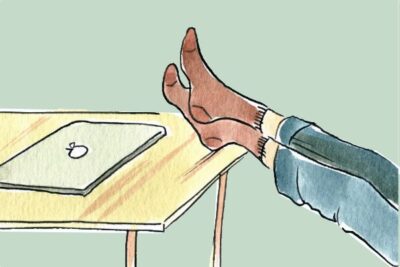 What rules are meaningful and valuable; which ones perpetuate inequality? At what point do we substitute deference to authority with our own autonomous consideration—and what might emerge if we were to choose our own distinct path? To hone our capacity for independent judgment, political scientist James Scott urges a daily practice of “anarchist calisthenics,” a form of small-scale rebellious action that cuts against the grain of authority; he envisions minor acts of law-breaking, in cases where this would not endanger others or undermine social well-being. Hierarchies that bring with them pogroms and violence, oppression and exploitation, are not easily overturned: such recognition of the stability of unjust systems requires him to “confront the paradox of the contribution of law-breaking and disruption to democratic political change”; law-breaking is needed to break the stranglehold of unjust rule. In Scott’s assessment, “Most of the great political reforms of the nineteenth and twentieth centuries”—among which he describes those for racial equality and civil rights—“have been accompanied by massive episodes of civil disobedience, riot, law-breaking, the disruption of public order, and, at the limit, civil war.” But, in societies defined by hierarchy, how do we develop the skills for anything else? Scott advises carefully chosen confrontations with imposed laws to assert and practise independence and autonomy without inflicting harm upon others.
What rules are meaningful and valuable; which ones perpetuate inequality? At what point do we substitute deference to authority with our own autonomous consideration—and what might emerge if we were to choose our own distinct path? To hone our capacity for independent judgment, political scientist James Scott urges a daily practice of “anarchist calisthenics,” a form of small-scale rebellious action that cuts against the grain of authority; he envisions minor acts of law-breaking, in cases where this would not endanger others or undermine social well-being. Hierarchies that bring with them pogroms and violence, oppression and exploitation, are not easily overturned: such recognition of the stability of unjust systems requires him to “confront the paradox of the contribution of law-breaking and disruption to democratic political change”; law-breaking is needed to break the stranglehold of unjust rule. In Scott’s assessment, “Most of the great political reforms of the nineteenth and twentieth centuries”—among which he describes those for racial equality and civil rights—“have been accompanied by massive episodes of civil disobedience, riot, law-breaking, the disruption of public order, and, at the limit, civil war.” But, in societies defined by hierarchy, how do we develop the skills for anything else? Scott advises carefully chosen confrontations with imposed laws to assert and practise independence and autonomy without inflicting harm upon others.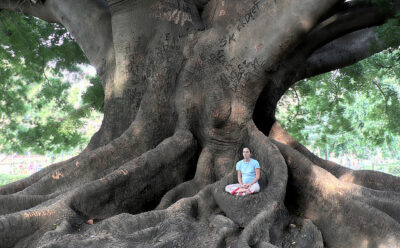 Mostly, the work of non-human entities—animal, plant, fungus, mineral, element—remains illegible to us. This is not for lack of effort: ecologists and physiologists and statisticians map territories and count offspring and track mates, overlay mealtimes and prey densities, measure brain activity and body fat and stomach enzymes. The result is ordered groups and categories of activity, confidently enumerated and named and labelled in terms of productivity. Least flycatchers engaged in aerial acrobatics to snag insects on the wing is sustenance, from this perspective, not entertainment. Wilson’s warblers hopping in the shrub birch branches, munching on little green inchworms, are engaged in functional foraging and not gustatory pleasure. The spruce grouse my black lab flushes from the woods is fleeing for survival, not searching for solitude and hermetic peace. But are we really seeing these lives in their entirety? The porcupine trundling along the trail; the lynx with its unhurried paces along the road; the moose, when not browsing willow, not surveying for wolves, just standing in the brush looking out at the mountains?
Mostly, the work of non-human entities—animal, plant, fungus, mineral, element—remains illegible to us. This is not for lack of effort: ecologists and physiologists and statisticians map territories and count offspring and track mates, overlay mealtimes and prey densities, measure brain activity and body fat and stomach enzymes. The result is ordered groups and categories of activity, confidently enumerated and named and labelled in terms of productivity. Least flycatchers engaged in aerial acrobatics to snag insects on the wing is sustenance, from this perspective, not entertainment. Wilson’s warblers hopping in the shrub birch branches, munching on little green inchworms, are engaged in functional foraging and not gustatory pleasure. The spruce grouse my black lab flushes from the woods is fleeing for survival, not searching for solitude and hermetic peace. But are we really seeing these lives in their entirety? The porcupine trundling along the trail; the lynx with its unhurried paces along the road; the moose, when not browsing willow, not surveying for wolves, just standing in the brush looking out at the mountains?

 The late actor Chadwick Boseman found calm in the sound of a djembe drum, said Viola Davis in an interview with USA Today. “One of the things that he carried everywhere was his djembe drum, which is called a talking drum in Africa. And he carried it himself,” Davis remembered about her Ma Rainey’s Black Bottom co-star: “He said ‘Viola, wherever I go, I carry my djembe drum. I do it for me. I play this drum for me, for my healing.’ It felt like he was playing that for God, for himself. There are no words to describe the playing because I love the djembe drum, but listening to him play when he had breaks in that trailer was just phenomenal.”
The late actor Chadwick Boseman found calm in the sound of a djembe drum, said Viola Davis in an interview with USA Today. “One of the things that he carried everywhere was his djembe drum, which is called a talking drum in Africa. And he carried it himself,” Davis remembered about her Ma Rainey’s Black Bottom co-star: “He said ‘Viola, wherever I go, I carry my djembe drum. I do it for me. I play this drum for me, for my healing.’ It felt like he was playing that for God, for himself. There are no words to describe the playing because I love the djembe drum, but listening to him play when he had breaks in that trailer was just phenomenal.”
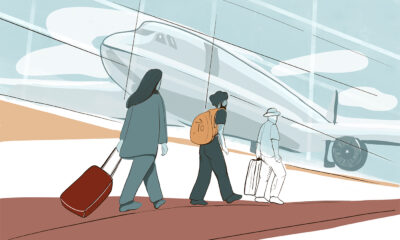

 World Journey stories teach us to overcome adversity, but more importantly, they teach us how to experience adversity in the first place. Successful myths, religious texts, and fairy tales — and modern screenplay and film — do not skirt the issue of hardship and conflict, nor do they encourage us to finish the hard work as quickly as possible. The characters in J.K. Rowling’s Harry Potter do not face obstacles and beasts simply to advance the plot, but to develop the inner courage and tenacity needed to grow as individuals within society. Mythic stories put us squarely in the middle of the hardest tasks we can imagine, and they force us to work hard, to guess, to take leaps of faith, and to test ourselves to the limit.
World Journey stories teach us to overcome adversity, but more importantly, they teach us how to experience adversity in the first place. Successful myths, religious texts, and fairy tales — and modern screenplay and film — do not skirt the issue of hardship and conflict, nor do they encourage us to finish the hard work as quickly as possible. The characters in J.K. Rowling’s Harry Potter do not face obstacles and beasts simply to advance the plot, but to develop the inner courage and tenacity needed to grow as individuals within society. Mythic stories put us squarely in the middle of the hardest tasks we can imagine, and they force us to work hard, to guess, to take leaps of faith, and to test ourselves to the limit.
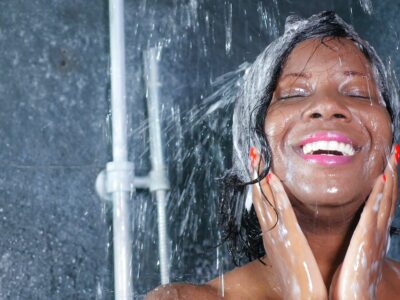
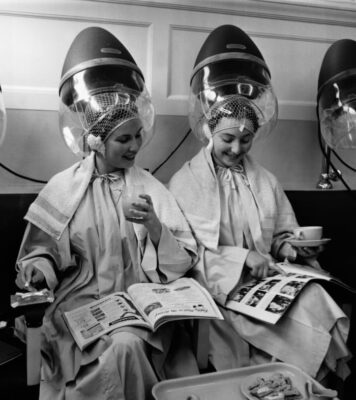 Hindmarch is not the first writer to wax lyrical about shampoo as therapy. I first discovered this life philosophy in the oeuvre of that national treasure of sunlounger fiction, Jilly Cooper. When a Cooper heroine is having a bad day – perhaps her lover is a double-crossing bastard, or the roof of the conservatory is falling in – she doesn’t crawl back to bed. She washes her hair, knocks back a stiff drink and cracks on. The scent of freshly washed hair is always a harbinger of good news in Cooper’s world. And she was on to something, because how you shampoo your hair might matter more than how you style it. “The mistake most people are making is using products that are too rich, and letting them build up,” says Northwood. “Healthy hair starts with getting it properly clean.” A professional will always wash your hair twice, because the first shampoo loosens the dirt, while the rinse-and-repeat gets it really clean.
Hindmarch is not the first writer to wax lyrical about shampoo as therapy. I first discovered this life philosophy in the oeuvre of that national treasure of sunlounger fiction, Jilly Cooper. When a Cooper heroine is having a bad day – perhaps her lover is a double-crossing bastard, or the roof of the conservatory is falling in – she doesn’t crawl back to bed. She washes her hair, knocks back a stiff drink and cracks on. The scent of freshly washed hair is always a harbinger of good news in Cooper’s world. And she was on to something, because how you shampoo your hair might matter more than how you style it. “The mistake most people are making is using products that are too rich, and letting them build up,” says Northwood. “Healthy hair starts with getting it properly clean.” A professional will always wash your hair twice, because the first shampoo loosens the dirt, while the rinse-and-repeat gets it really clean.